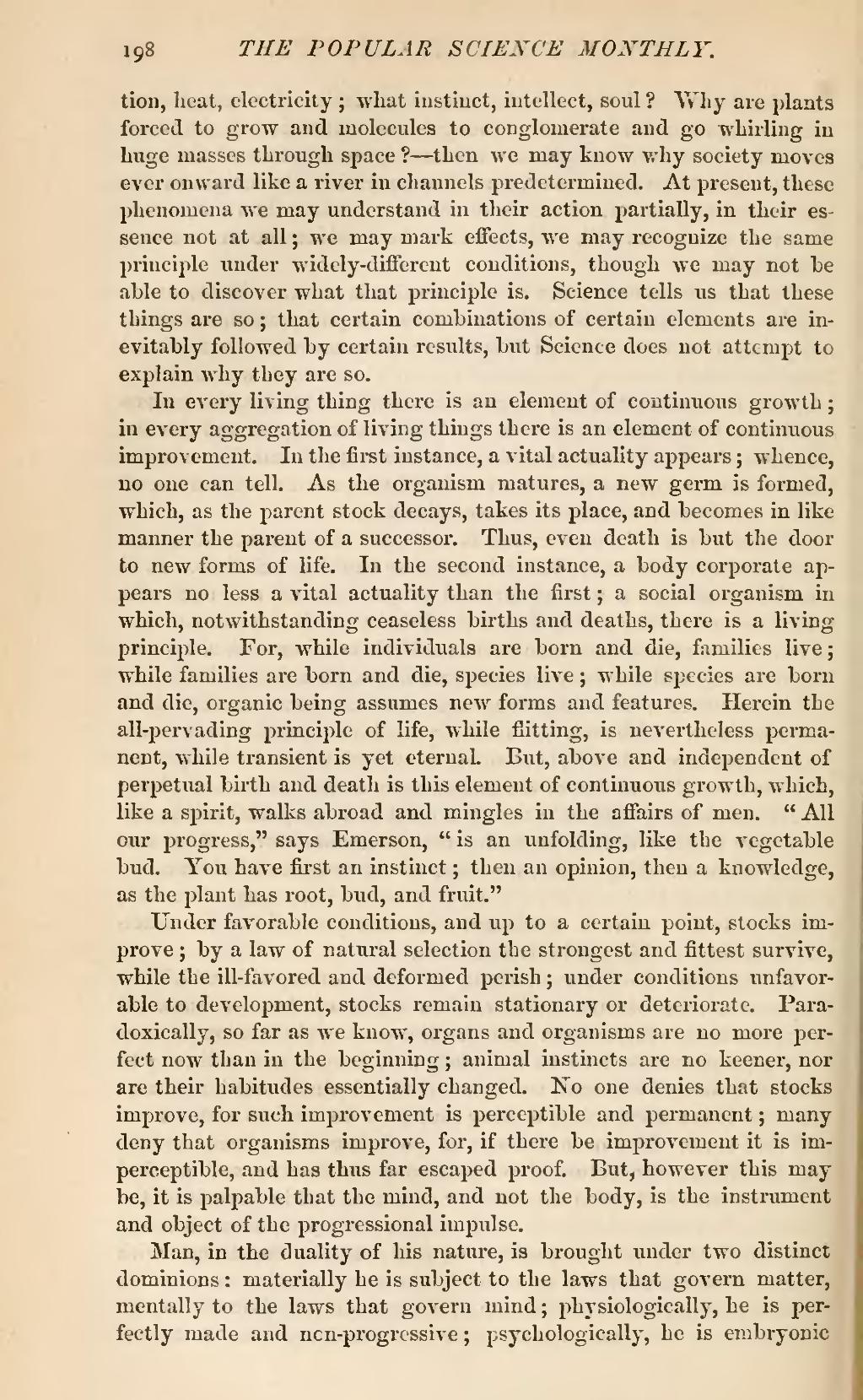tion, heat, electricity; what instinct, intellect, soul? Why are plants forced to grow and molecules to conglomerate and go whirling in huge masses through space?—then we may know why society moves ever onward like a river in channels predetermined. At present, these phenomena we may understand in their action partially, in their essence not at all; we may mark effects, we may recognize the same principle under widely-different conditions, though we may not be able to discover what that principle is. Science tells us that these things are so; that certain combinations of certain elements are inevitably followed by certain results, but Science does not attempt to explain why they are so.
In every living thing there is an element of continuous growth; in every aggregation of living things there is an element of continuous improvement. In the first instance, a vital actuality appears; whence, no one can tell. As the organism matures, a new germ is formed, which, as the parent stock decays, takes its place, and becomes in like manner the parent of a successor. Thus, even death is but the door to new forms of life. In the second instance, a body corporate appears no less a vital actuality than the first; a social organism in which, notwithstanding ceaseless births and deaths, there is a living principle. For, while individuals are born and die, families live; while families are born and die, species live; while species are born and die, organic being assumes new forms and features. Herein the all-pervading principle of life, while flitting, is nevertheless permanent, while transient is yet eternal. But, above and independent of perpetual birth and death is this element of continuous growth, which, like a spirit, walks abroad and mingles in the affairs of men. "All our progress," says Emerson, "is an unfolding, like the vegetable bud. You have first an instinct; then an opinion, then a knowledge, as the plant has root, bud, and fruit."
Under favorable conditions, and up to a certain point, stocks improve; by a law of natural selection the strongest and fittest survive, while the ill-favored and deformed perish; under conditions unfavorable to development, stocks remain stationary or deteriorate. Paradoxically, so far as we know, organs and organisms are no more perfect now than in the beginning; animal instincts are no keener, nor are their habitudes essentially changed. No one denies that stocks improve, for such improvement is perceptible and permanent; many deny that organisms improve, for, if there be improvement it is imperceptible, and has thus far escaped proof. But, however this may be, it is palpable that the mind, and not the body, is the instrument and object of the progressional impulse.
Man, in the duality of his nature, is brought under two distinct dominions: materially he is subject to the laws that govern matter, mentally to the laws that govern mind; physiologically, he is perfectly made and non-progressive; psychologically, he is embryonic

